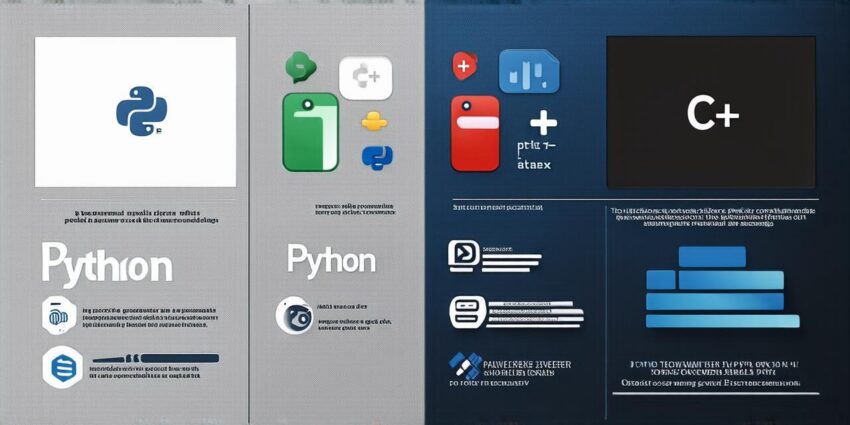Python and C++ are both powerful programming languages with their own strengths and weaknesses. However, as technology continues to evolve, some people believe that Python may eventually surpass C++ in certain areas. In this article, we will explore the potential reasons why this might happen and discuss whether or not it is likely.
Strengths of Python
Python is a popular choice for many developers due to its simplicity and ease of use. It has a clean, readable syntax that makes it easy to write code quickly and efficiently. Additionally, Python has a large number of built-in libraries and frameworks that make it easier to develop complex applications without having to write everything from scratch.
Strengths of C++
C++ is a high-performance language that is often used for system programming and other tasks where speed and efficiency are critical. It has a low-level syntax that allows developers to have more control over the execution of their code, which can lead to faster performance. Additionally, C++ has a large number of powerful libraries and frameworks that make it easier to develop complex applications in areas such as gaming and graphics.

Potential Reasons for Python’s Surge
One potential reason why Python may surpass C++ in the future is due to its popularity among developers. As more people learn Python, there will be a larger pool of talented developers who can contribute to its development and create new libraries and frameworks. Additionally, as more companies adopt Python for their development needs, this will lead to further investment in its infrastructure and support.
Another potential reason is the rise of data science and machine learning. Python has become the go-to language for these fields due to its simplicity, ease of use, and powerful libraries such as NumPy, Pandas, and TensorFlow. As these fields continue to grow, it is likely that Python will see further growth in popularity and usage.
Potential Reasons for C++’s Continued Dominance
Despite the potential reasons for Python’s surge, there are also several factors that may keep C++ as the dominant language in certain areas. One factor is the performance of C++ code. Due to its low-level syntax and ability to optimize code at a detailed level, C++ can often produce faster and more efficient code than Python. This will continue to be an important consideration for developers who need high-performance code.
Another factor is the existing ecosystem around C++. It has a large number of powerful libraries and frameworks that have been developed over many years, which make it easier for developers to create complex applications in areas such as gaming and graphics. This will continue to be an important consideration for developers who need access to these specific types of tools.
Conclusion
In conclusion, while Python may eventually surpass C++ in certain areas, it is unlikely that it will do so anytime soon. Both languages have their own strengths and weaknesses, and the choice between them will depend on the specific needs of the developer or organization. Ultimately, it is important for developers to be familiar with both languages and to choose the one that best meets their needs.
